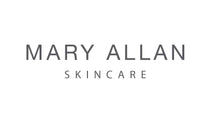How To Choose The Most Ideal Vitamin C Molecule For Your Skin Type
Vitamin C is one of the best ways to incorporate brightening and firming benefits into your daily skin care regimen. There are several forms of vitamin c available in facial serums and understanding the differences between each is key when selecting the best product for your skin type.
Below is a list of our favorite vitamin c and vitamin c derivatives that we have found to be most beneficial for skin brightening and firming benefits.
L-Ascorbic Acid
This is a pure source of vitamin c with a ton of research since it has been around the longest. It is water-soluble and works on the epidermis layer to brighten the skin and fade dark spots. It also has been shown to contain beneficial antioxidant protection.
Benefits: If you are looking for immediate results and brightening then L-Ascorbic Acid is a fantastic form of vitamin c to add to your daily regimen.
One of the drawbacks of this form of vitamin is that It is highly unstable. Exposure to air, light, and heat will cause the molecule to oxidize.
Powder Form Is Ideal - When purchasing this form of vitamin c for daily face care it is ideal to use this in powder form and mix into a serum or with water as to prevent oxidization. There are several brands on the market that sell this in powder form and or with a serum that you mix the powder into.
Look For Concentrations Of:
10% is the ideal concentration for drier and more sensitive skin types
20% is ideal for skin types that are on the oilier side and are not overly sensitive.
Tetrahexyldecyl Ascorbate (THD Ascorbate)
This is considered a break-through next generation form of vitamin c molecule that is highly stable and does not oxidize with light and air. Studies show that it is capable of penetrating both the epidermis and the dermis layer of the skin because it is lipid based and able to interact with our lipid skin profile. It also has been shown to contain beneficial antioxidant protection.
Benefits:
THD Ascorbate has been shown to stimulate collagen production and is shown to be better tolerated by sensitive skin because it is in a higher Ph range due to the fact that it is oil soluble.
*Since the PH is higher with this form of vitamin c it is ideal for dry and sensitive skin types.
Look For Concentrations Of:
10% is the ideal concentration for drier and more sensitive skin types
15% is ideal for skin types that not overly sensitive.
*Since this form of vitamin c can penetrate the dermis layer it is considered more potent then any other form of vitamin c and the percentage required is lower then other forms due to it's potency.
Sodium Ascorbyl Phosphate (SAP)
This form of vitamin c is water-soluble, not pH dependent and is considered non-irritating.
Benefits: If you have sensitive, dry skin then this can be an ideal option as it has been shown to be well tolerated by most skin types. It has also shown to work well for acne skin types.
Look For Concentrations Of:
15% is the ideal concentration for drier and more sensitive skin types
20% is ideal for skin types that are on the olier side and are not overly sensitive.
Ethyl Ascorbic Acid (EAA)
A highly stable vitamin c derivative that helps boost your skin's natural moisture factor. In addition, it has been shown to have excellent brightening capabilities. It also has been shown to contain beneficial antioxidant protection.
Benefits: If you have sensitive, dry skin then this can be an ideal option as it has been shown to be well tolerated by most skin types.
Look For Concentrations Of:
15% is the ideal concentration for most skin types
3 Take Aways
1. Formula is key when selecting a vitamin c product. Not all vitamin c serums are created equal and understanding the differences between each vitamin c molecule is key when selecting the best serum for your skin type.
2. Since each form of vitamin c requires different concentrations it is best to know the ideal percentage for each and look for the vitamin c near the top of the ingredient deck on each product. If you see it at the bottom of the ingredient deck then it is probably there as a secondary active.
3. Always do a patch test when trying a new vitamin c product and wear a daily SPF as skin can become more sensitive.
